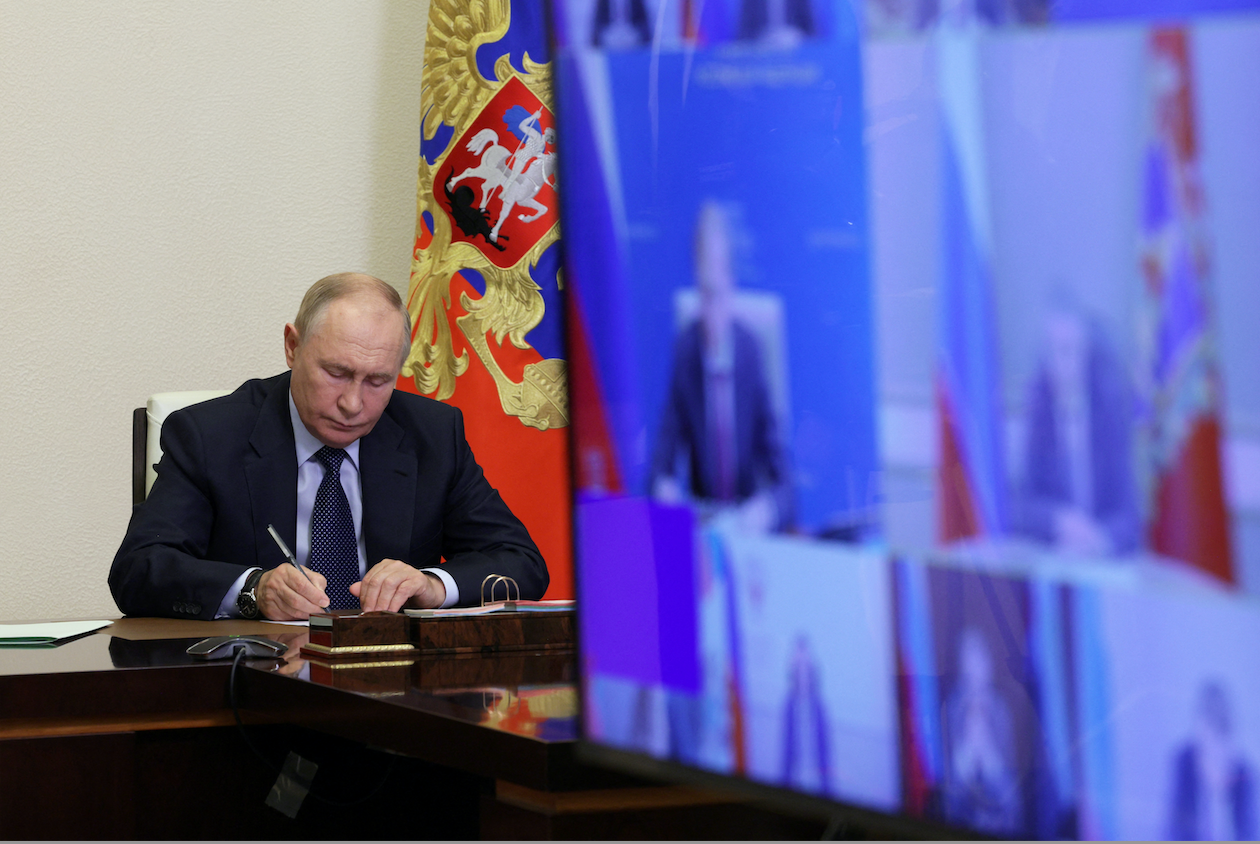Just hours after Ukraine fired US-made long-range missiles at a Russian target for the first time, Vladimir Putinsigned a new Kremlin nuclear doctrine that lowers the threshold for Moscow’s use of nukes. They’re now fair game as a response to a conventional weapons attack.
The timing of the signing is clear. The Kremlin has long warned that Ukraine using US long-rangers could provoke a major response and has made not-so-veiled threats to use tactical nuclear weapons in Ukraine.
Will that happen? There are at least two ways to look at this, and both revolve around one consideration: In two months, Joe Biden will relinquish power to Donald Trump, who campaigned in part on a pledge to end the war in Ukraine.
One school of thought: Make chaos while the sun shines. Putin now has two months to escalate as much as he likes, knowing that the increased danger will only heighten pressure on Trump to push for a peace deal as soon as he takes office.
The other: If it ain’t broke, don’t nuke it. Putin is on a roll right now, advancing in eastern Ukraine while imported North Korean cannon fodder is handling Kyiv’s forces in Kursk, the Russian border region Ukraine has occupied since August. Why risk the international backlash over a nuclear strike now? Better to retaliate with “hybrid warfare” by arming anti-US proxies elsewhere, or messing with infrastructure in Europe (the mysterious “sabotage” of two Baltic Sea communications cables earlier this week shows the vulnerabilities). In other words, Putin has plenty of options for havoc that fall short of splitting the atom.
The wildcard: Ukraine’s aim. If Kyiv inflicts serious damage on Russia’s military capabilities, that could shape the Kremlin’s thinking. Either way, both sides likely see the next two months as a final act for this phase of the war. The race for leverage is on.
